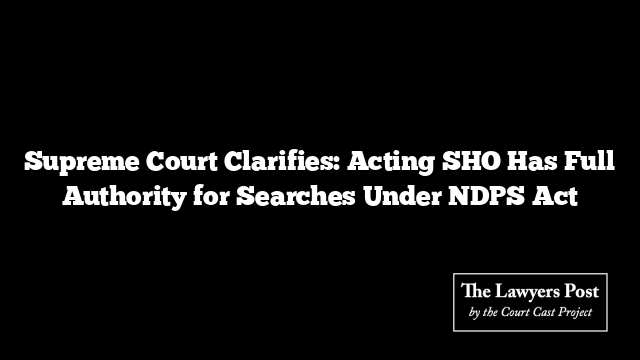In a ruling that strengthens the operational muscle of law enforcement under the NDPS Act, the Supreme Court has made it clear—when the Station House Officer (SHO) is unavailable, the baton doesn’t fall. It passes seamlessly.
The apex court declared that an officer serving as the “In-Charge SHO” holds the legal competence to conduct searches under the Narcotic Drugs and Psychotropic Substances Act, even in the absence of the officially designated SHO. This clarification came as the bench, comprising Justices Pankaj Mithal and SVN Bhatti, examined a decision from the Rajasthan High Court that had previously quashed an FIR on the grounds that the search was carried out by someone other than the SHO.
The Court firmly rejected the idea that procedural formality should override functional necessity, emphasizing that the role of In-Charge SHO is not a ceremonial placeholder but a position empowered with all the authority the law grants to the SHO. The decision effectively prevents technicalities from becoming escape hatches in narcotics cases.
With this ruling, the Court reaffirmed a practical stance: enforcement of the NDPS Act must not be hamstrung by organizational absences. What matters is lawful authority, not a nameplate on a police station door.





